Integrated Pest Management: an eco-friendly approach to control pests
Updated: Oct 09, 2014 10:27:27am
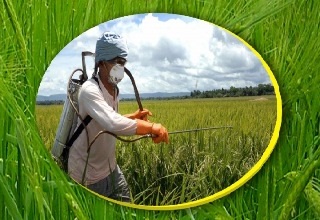
Suppression of pest population below economic threshold level can be done through the adoption of feasible and affordable good agricultural practices aiming least disturbance to the eco system and environment.
National Policy on IPM
The indiscriminate and unilateral use of pesticides was the only plant protection tool during sixties and seventies for sustaining of agricultural production potential of the high yielding varieties under the intensive cropping systems. This has led to several ill-effects like human and animal health hazards, ecological imbalance, development of resistance in the pests to pesticides, pests resurgence and environmental pollution as well as destruction of natural enemies (bio-control agents) of pests and increased level of pesticides residues in soil, water, food with the increased use of pesticides.
National Policy statement on IPM was made by the then Hon’ble Union Agriculture Minister of India in 1985. Later on National policy on Agriculture - 2000 and National policy on Farmers - 2007 have also supported the IPM. It was also supported by the Planning Commission document for 12th Plan addressing the negative impact of chemical pesticides.
In order to minimize the use of hazardous chemical pesticides and to manage the insect pest/disease attack as well as to increase the crop productivity, Government of India, Ministry of Agriculture, Department of Agriculture and Co-operation (DAC) has launched a scheme “Strengthening and Modernization of Pest Management (IPM) Approach in India in 1991-92”, as cardinal principle and main plank of Plant protection strategy in overall crop production programme.
Under the ambit of IPM programme, the Govt. of India has established 31 Central IPM centres in 28 States and One UT. In 12th Five year plan EFC Memo, a “National mission on Agricultural Extension and Technology (NMAET)” was formed under which a “sub-mission on Plant Protection and Plant Quarantine” was introduced from the year 2014-15.
“Strengthening and Modernization of Pest Management Approach in India has become one of the components of this sub-mission with mandate to popularize adoption of Integrated Pest Management (IPM) through training and demonstration in crops inter-alia promotion of biological control approaches in crop protection technology.
Currently, there are five regional Central Integrated Pest Management Centres (CIPMCs) in Faridabad (Haryana), Bangalore (Karnataka), Guwahati (Assam), Gorakhpur (UP) and Nagpur (Maharashtra).
In addition, there are major CIPMCs at Hyderabad (Telangana), Patna (Bihar), Raipur (Chhattisgarh), Ranchi (Jharkhand), Bhubaneswar (Odisha), Jalandhar (Punjab), Lucknow (Uttar Pradesh), Kolkata (West Bengal), Vadodara (Gujarat), Solan (Himachal Pradesh), Jammu (Jammu and Kashmir), Ernakulam (Kerala), Indore (Madhya Pradesh), Trichy (Tamil Nadu), Sriganganagar (Rajasthan), and Dehradun (Uttarakhand).
There are also minor CIPMCs in Port Blair (Andaman and Nicobar), Itanagar (Arunachal Pradesh), Madgaon (Goa), Srinagar (Jammu and Kashmir), Shillong (Meghalaya), Imphal (Manipur), Aizwal (Mizoram), Dimapur (Nagaland), Gangtok (Sikkim) and Agartala (Tripura).
Mandate of Central Integrated Pest Management Centres:
The mandate of these Centres is pest/disease monitoring, production and release of bio-control agents/ bio-pesticides, conservation of bio-control agents and Human Resource Development in IPM by imparting training to Agriculture / Horticulture Extension Officers and farmers at Grass Root Level by organizing Farmers Field Schools (FFSs) in farmers’ fields. Basic aim of FFS is to train the farmers on the latest IPM technology so that they are able to take decisions in pest management operation. In FFSs the farmers are also trained about the judicious use of pesticides on their crops so that the crop can be grown with minimum use of pesticides.
Objectives:
· Maximize crop production with minimum input costs.
· Minimize environmental pollution in soil, water and air due to pesticides.
· Minimize occupational health hazards due to chemical pesticides.
· Conserve ecosystem and maintain ecological equilibrium.
· Judicious use of chemical pesticides for reducing pesticide residues.
Activities:
The 31 Central Integrated Pest Management Centres (CIPMCs) located in 28 States and one Union Territory undertakes the programme with following activities:
· Surveillance and Monitoring of insect-pest and diseases.
· Augmentation and Conservation of Natural enemies.
· Production and release of bio-control agents.
· Human Resource Development (HRD) through Farmers’ Field Schools (FFSs) Season-long training programmes, orientation training programme and refresher courses.
Survey and Surveillance
· To keep a close watch over a desired period of time in an identified cropped area on build up of pests (insects, vertebrates, diseases, nematodes & weeds etc.) and their natural enemy population so that a prior care can be adopted to control the target pests.
· The basic objective of pest surveillance is to detect the early sign of existing and emerging pest and their natural enemies for issuance of timely advisories to the State Govt. and farmers for the adoption of suitable intervention.
· Survey, monitoring, field scouting are the major activities of the pest surveillance. Fixed plot and rapid roving survey methodology are adopted for pest surveillance.
· e-pest surveillance is required to reduce the lead time from pest detection to adoption of interventions.
· Rapid Roving Pest Surveys are conducted by the teams of CIPMCs on a predetermined survey routes.
Biological practices:
Biological control of insect pests and diseases through biological means is most important component of IPM. In a broader sense, biocontrol is use of living organisms to control unwanted living organisms (pests). In other words, it is the deliberate use of parasitoids, predators and pathogens to maintain pest population at level below those causing economic loss either by introducing a new bioagent in the environment of pest or by increasing effectiveness of those already preset in the field.
Parasitoids:
These are the organisms which lay eggs in or on the bodies of their hosts and complete their life cycles on host bodies as a result of which hosts die. A parasitoid may be of different type depending on the host developmental stage in or on which it completes its life cycle. For example, egg, larval, pupal, adult, egg-larval and larval pupal parasitoids. Examples are different species of Trichogramma, Apanteles, Bracon, Chelonus, Brachemeria, Pseudogonotopus etc.
Predators:
These are free living organisms which prey upon other organisms for their food. Examples are different species of spiders, dragon flies, damsel flies, lady bird beetles, Chrysopa species, birds etc.
Pathogens:
These are micro-organisims which infest and cause diseases in their hosts as a result of which hosts are killed. Major groups of pathogens are fungi, virus and bacteria. Some nematodes also cause diseases in some insect pests. Important examples of fungi are different species of Hirsutella, Beauveria, Nomurae and Metarhizium which have been reported to infect and kill large number of insects (upto 90 per cent) in the fields. Among viruses, most important examples are of Nuclear Polyhedrosis Virus (NPV) and Granulosis viruses. Outbreak of viruses in armyworms, cut worms, leaf folders, hairy caterpillars and plant hoppers have been reported many times. Among bacteria, Bacillus thuringiensis (B.t.) and B. popillae are very common examples.
Diseases of pests can be mass multiplied in the laboratory at a low cost in liquid or powdered formulations that can be sprayed like ordinary chemical pesticides. These formulations are known as biopesticides. The different types of biocontrol practices are grouped as under:-
a. Introduction
In this process, a new species of bioagent is introduced in a locality for its establishment against its host. This is done only after thorough laboratory examination and field trials for its efficacy.
b. Augmentation
In this process, the population of natural enemies already present in the area is increased by releasing either laboratory reared or field collected bioagents of same species in such number as would require to suppress the pest population in that area.
c. Conservation
This is the most important component of biological control and plays a major role in pest suppression. In this process, natural enemies present in the nature are protected from being killed.
Human Resource Development Programmes in IPM
There are 3 types of Human Resources Development Programmes being Implemented in component promotion of integrated pest management under the scheme “Strengthening and Modernization Pest Management Approach in India” (SMPMA). The details of these programmes are as under –
i. Farmers field school programme:
It is one of the major activities of the scheme SMPMA through which the concept of Integrated Pest Management (IPM) is being popularized among the farming community by organizing the IPM Farmer’s Field Schools (FFS) on major crops (Rabi and Kharif). The basic objective of organizing FFS is to make the farmers self-decision makers about their own field on crop cultivation and IPM activities. It is a season long activity which is confined in 14 weekly sittings in the form of FFS in a village where the programme is to be conducted. The villages /area with more use of pesticides and having a pest history is generally selected for organizing FFS.
As many as 30 farmers and 5 Agriculture Extension Officers (AEO) are selected in each FFS programme for giving training. Progressive farmers or NGO’s are also selected in place of AEO’s if they are not spared by the government. First of all a bench mark survey by way of conducting farmers interview on a prescribed Proforma is conducted. The training is fully field oriented participatory and non- formal approach. On form practical training in specific crops on IPM practices are organized in FFS. The AEO’s trained in this training are supposed to provide training to other fellow farmers by conducting FFS in their area of jurisdiction. Rs. 26,700/- is allotted for each FFS to be conducted by CIPMCs. Similarly Rs. 29,200/- sanction is allotted to each FFS to be conducted by KVKs.
ii. Season long training programme
On-farm practical training in specific crop in relation to IPM practices through Season Long Training Programmes is organized for the extension workers. The facilitators trained in this Training of Facilitators programme will further conduct FFS in their respective areas for that specific crop. Initially these SLTPs training programmes were started, designed and funded by FAO/ UNDP/ ADB agencies for the officers of Directorate of PPQS to make them master trainers. Later on the state extension officers from Departments of Agriculture and Horticulture were also included as trainees. Initially state governments were deficient of trained personals to organize IPM training programmes to train their own staff, so the states nominated their extension officers in these programmes regularly. Later on Government of India started such programmes with its own funding. The state were deputing their officers for training in such programmes regularly but with the passage of time/seasons it was felt that the state governments were not in a position to depute their officers as many as required for whole crop seasons or for long durations. Because their extension officers have to perform multifarious field activities where as our training programmes were designed keeping in view the pest problems only. There had also been regular reactions from the states that it is not feasible for them to spare the services of their Agricultural Extension Officers/ Subject Matter Specialists for such a long durations especially for these trainings. If these officers are deployed for such long periods their areas remain unattended to perform other extension activities. Keeping in view of above facts the periods of 60 and 90 days trainings programmes were squeezed to 30 days by the Directorate taking into account the peak pest’s periods.
iii. Short Duration Training Programmes on IPM
In order to promote Integrated Pest Management Approach on war footing level among the farming Community, Non-Governmental Organizations (NGOs), Pesticide dealers, Graduate and Post Graduate Students, two and five days short duration training programmes on IPM are being conducted by CIPMCs to enable them to practice these eco-friendly Plant Protection approaches in their fields and also to popularize and spread the IPM measures among the society. Two days IPM programmes are meant for farmers whereas the five days programmes are for the State Agriculture Extension Officers, NGOs and Pesticide Dealers.
Initially, the IPM Training by the CIPMCs were started by Implementing Short Duration Trainings for two and five days in the states for the state agriculture extension officers since 1990 which were later on merged with the activities of cluster demonstrations in form of Farmers Fields School for which no separate budget provision was kept. The basic objectives of these programmes were to create awareness among the farming community about the ill effects of pesticides and to disseminate the knowledge of non-chemical methods of pest management among the farming community and the state extension agencies. They were apprised about the presence of beneficial organism present in the fields contributing a great role in pest management. The two days and five days programmes for which the separate budget was provided were started since 2005-2006. A total of 40 trainees were trained in each programme.
Brief description of work up-to 2013-14:
Directorate of PPQ&S, under DAC has organized 15,233 Nos. of Farmers Field Schools (FFSs) wherein 58620 Agriculture / Horticulture Extension Officers and 4,57,988 farmers on different crops upto 2013-14 have been trained on latest IPM technology in various crops. Over an area of 248.86 lakh hectare has been covered under pest monitoring and 47,489 million bio-control agents has been released in the States for control of different pests and diseases. So far total 2,151 master trainers are trained in different crop like Rice, Cotton, Vegetable, Fruit Crops, Ground nut, Mustard, Soybean, Gram/tur, Chillies and sugarcane. Total of 701 two days HRD programme and 67 five days HRD programme were organized since 2005-06 onwards through which total 26,040 farmers in two days programmes and 2,680 AEOs/ Pesticides Dealers/ NGOs/ Progressive Farmers are trained and sensitized to reduce the use of chemical pesticides by encouraging the use of good agricultural practices in Five days HRD programmes at also IPM package of practices for pests/diseases management in 77 major crops have been developed in collaboration with State Department of Agriculture / Horticulture / ICAR Institutions / State Agriculture Universities which have been circulated to all States / UTs and have been posted on Directorate’s website www.dacnet.nic.in/ppin for the use by the extension functionaries and the farmers.
At present there are 352 bio-control laboratories functioning in India for production of Bio-control agents and bio-pesticides. These labs have setup by different agencies viz. Central Government, State Govt., ICAR, SAU’s, DBT, NGO’s and Private entrepreneurs.
Under Grant in aid Rs 1,772 lakh to the States and Rs 64,15,503/- to the NGO’s has been granted for setting up of bio-control laboratories in different states and UTs . Besides this Rs 3,53,73,000/- has been granted for rodent pest management in North Eastern States. (KNN Bureau)
(The writer is Director, Department of Agriculture and Cooperation, Ministry of Agriculture)

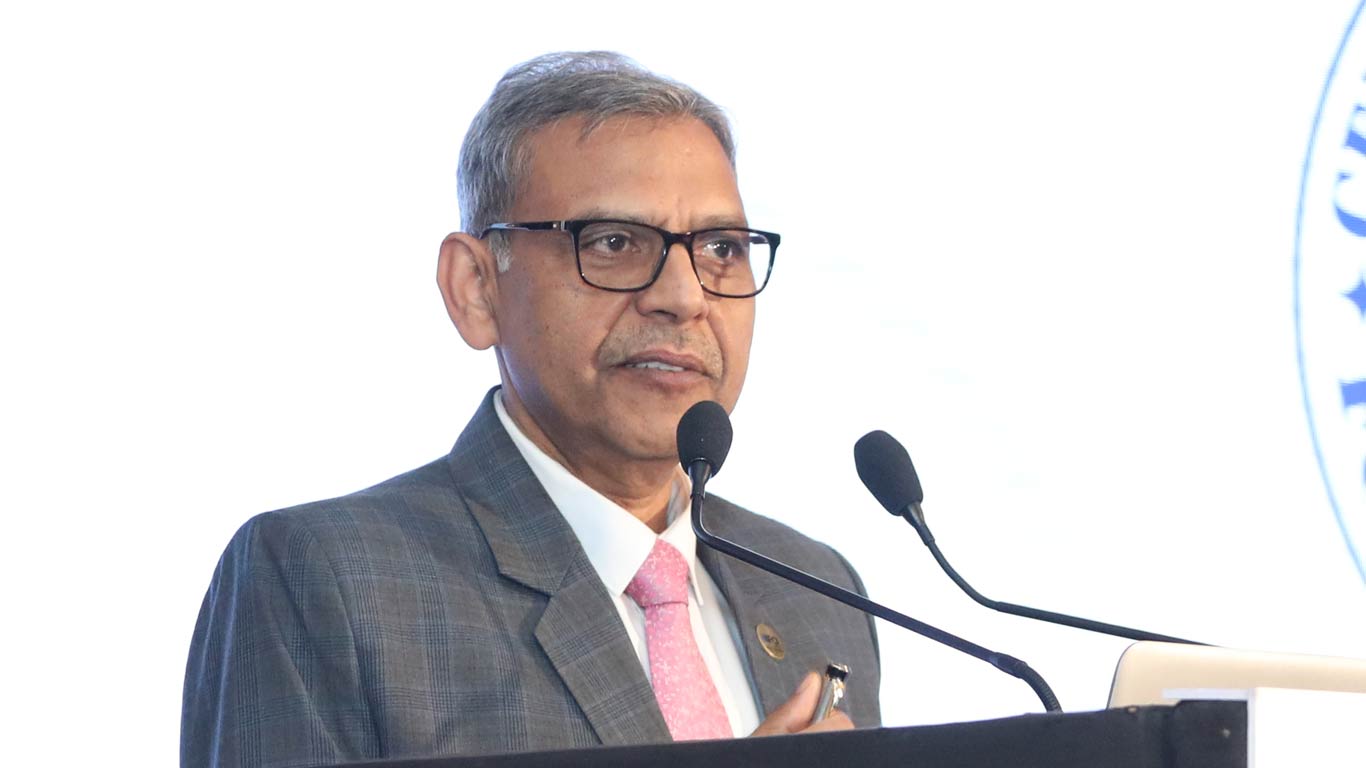
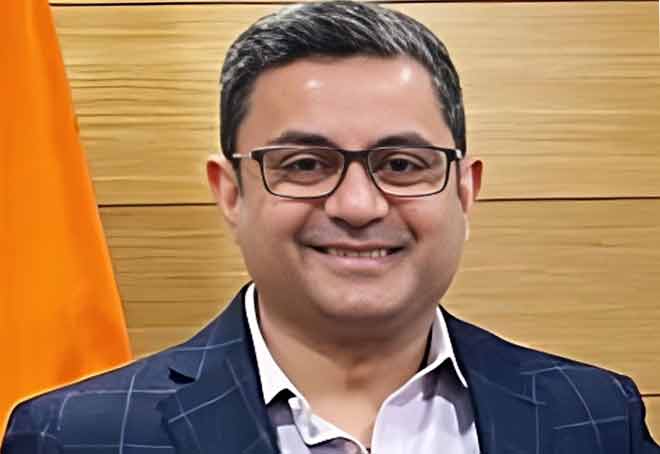

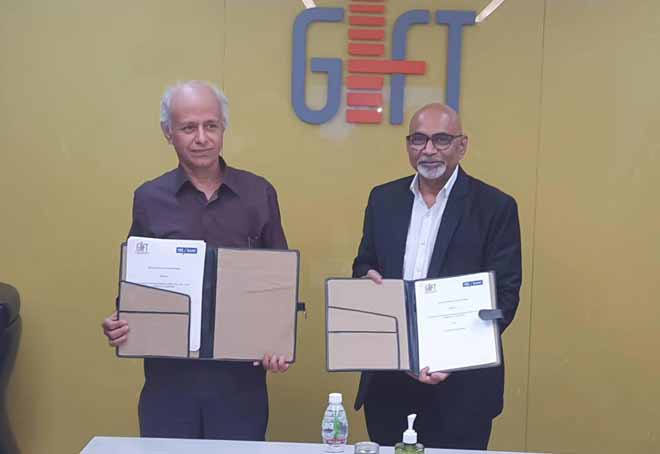
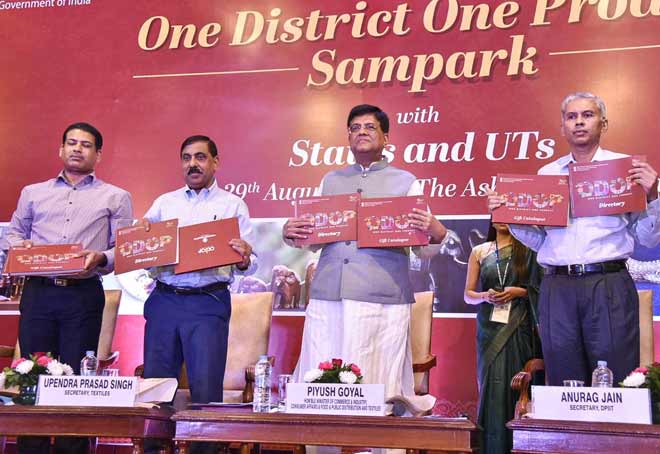





